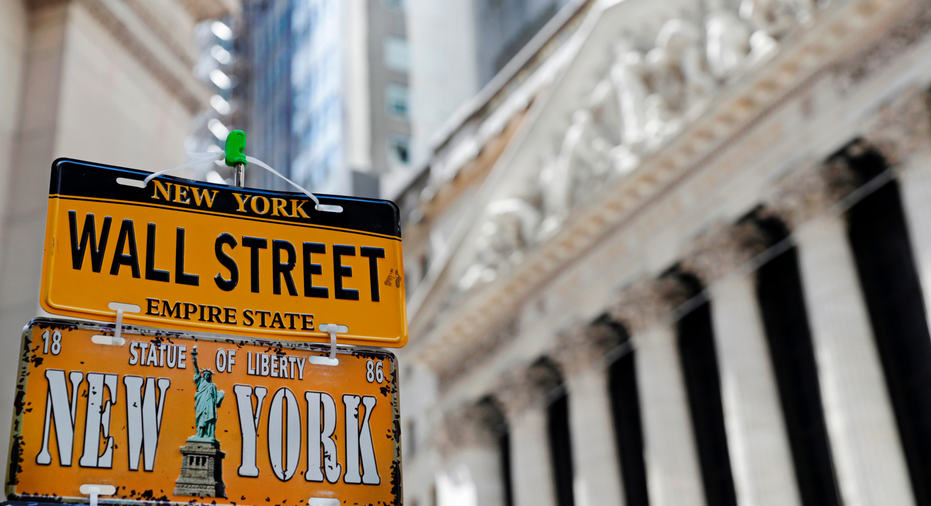Keeping what's yours: Fund investing has never been cheaper

NEW YORK – Being cheap pays off when it comes to fund investing, and more investors are heeding the call.
Investing is full of uncertainties, as the gyrations of the past few months attest, and keeping costs low is one of the few things that investors have within their control. Plus, having low fees is a pretty good predictor of a fund's future success, researchers say. That's why it's encouraging that a pair of recent reports show that investors paid less in expenses last year across their stock, bond and other types of funds.
Funds don't send a bill outlining their managers' salaries and other expenses. Instead, they carve their fees out of money already invested in the fund. Last year, the average stock mutual fund kept $59 of every $10,000 invested, down from $63 the year before, according to the Investment Company Institute, an industry trade group. The figure has been dropping steadily for decades: In 1996, it was more than $100 of every $10,000 invested.
"Fees continue to come down, yet again," said Sean Collins, chief economist at the Investment Company Institute. "Across the board, you're seeing reductions. There's a lot of competition."
Fees are dropping for mutual funds and exchange-traded funds that track indexes, which are already famous for being low-cost investments. But they're also falling for actively managed funds, where teams of managers and analysts try to pick which stocks and bonds will do better than the rest of the market. Costs are dropping for both stock and bond funds, as well as for the target-date retirement funds that have become the default for many 401(k) plans.
A big factor is how discriminate investors have become in choosing funds based on their fees.
Consider actively managed U.S. stock funds, which generally have higher expenses because they employ teams of managers poring through cash-flow statements in hopes of finding winners. Investors yanked more than $270 billion out of these types of funds last year, continuing a yearslong trend. Investors have been turned off not only by their higher fees but also by the fact that most have failed to keep up with index funds over the long term.
But one small subset of them was able to attract new dollars: the cheapest ones. The actively managed U.S. stock funds that ranked among the cheapest 5 percent for fees drew $3 billion, according to the Investment Company Institute.
With dollars concentrating in just the lowest-cost funds, overall expenses paid are dropping.
"We always hear actively managed funds are bleeding cash, they can't compete with index funds," said Shelly Antoniewicz, senior director of industry and financial analysis at the Investment Company Institute. "But it's fiercely competitive."
Even index funds, which already have low fees because they simply track the S&P 500 and other indexes, have seen their expenses drop.
Here, as with actively managed funds, investors are very aware of costs. Of all the dollars that went into U.S. stock index funds last year, roughly half of the total went into those that rank in the cheapest 5 percent.
Index funds are also benefiting from their enormous popularity. As they absorb dollars leaving actively managed funds, their bulked-up size means they can spread their costs out over a larger base. That means each individual investor bears a proportionally smaller burden of the fund's total costs.
All the declines mean fund investors saved a total of $4 billion last year, according to a study by Morningstar. It was the biggest annual decline in fund expense ratios since Morningstar began tracking the statistic in 2000.
"Investors paid lower fund expenses in 2017 than ever before," Morningstar senior analyst Patricia Oey wrote in her report.
"This fee decline is a big positive for investors because fees compound over time and diminish returns," she said.
The end result is a Lake Wobegon-scenario where most investors are in funds with below-average fees, according to Morningstar.
It may be tempting to think funds with high fees will do better — and some investors believe that you get what you pay for, so higher expenses should be an indicator of more skilled managers. But funds with high fees have to perform that much better just to match the performance of low-fee funds.
Over time, that additional hurdle becomes even more challenging as compounded returns pile up on top of each other. That's why researchers say funds with low fees are more likely to survive and tend to have better returns than their high-fee competitors over the long run.
So be proud of being cheap.



















